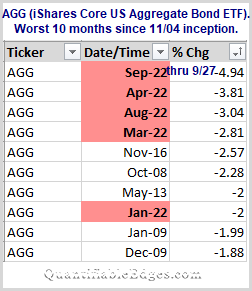

#SOME FEWS OF OTHERS CODE#
Prohibits a compostable plastic bag sold in the state from displaying a chasing arrow resin identification code or recycling symbol in any form. Requires manufacturers of compostable plastic bags to ensure that the bag is readily and easily identifiable from other bags. It provides for a civil penalty for a violation. Prohibits the sale of plastic products labeled as compostable, home compostable, or marine-degradable unless it meets standard specifications. States with Enacted Plastic Bag LegislationĮnacted Plastic Bag State Legislation StateĪs of July 1, 2015, certain large stores are prohibited from providing a single-use plastic carryout bag to a customer, unless the retailer makes that bag available for $0.10 and certain conditions are met. Others would preempt local government action or improve bag recycling programs. State lawmakers have introduced at least 95 bills in 2019 related to plastic bags. Most of these bills would ban or place a fee on plastic bags. Since then at least four other states- California, Delaware, New York and Rhode Island-and the District of Columbiahave followed suit. The law prevents retailers from supplying plastic bags unless they provide a convenient storefront receptacle to ensure used bags are collected and recycled. In 1991, Maine became the first state to enact legislation requiring recycling efforts at retail stores. States have a long history of pursuing legislation related to labeling, recycling, and reusing plastic bags.

Notable Cities/Counties with Plastic Bag Bans and Fees Cities with Plastic Bag Bans In 2009, the District of Columbia enacted legislation requiring all businesses that sell food or alcohol to charge 5 cents for each carryout paper or plastic bag. In addition to plastic bags, Vermont's SB 113 also placed restrictions on single-use straws and polystrene containers. Bags distributed at the meat/deli counter and bulk food area are exempt, as well as newspaper bags, trash bags, garment bags, bags provided by a pharmacy for prescription drugs, and restaurant takeout bags. The law allows individual counties the option of placing a 5-cent fee on paper bags, with 2 cents going to local governments and 3 cents to the state's Environmental Protection Fund.įive other states enacted legislation in 2019- Connecticut, Delaware, Maine, Oregon and Vermont. The law, which goes into effect March 2020, will apply to most single-use plastic bags provided by grocery stores and other retailers. New York became the third state to ban plastic bags in 2019 with passage of Senate Bill 1508. Hawaii has a de facto statewide ban as all of its most populous counties prohibit non-biodegradable plastic bags at checkout, as well as paper bags containing less than 40 percent recycled material. Bans in Kauai, Maui and Hawaii counties took effect between 20, with Honolulu becoming the last major county to approve the ban in 2015. Voters also rejected a second measure, Proposition 65, which proposed to create an environmental fund with proceeds from a 10-cent charge for alternative bags. A detailed summary of the law can be found below. Proposition 67 passed with 52 percent of the vote, meaning the plastic bag ban approved by the Legislature remains the law. The ban was set to take effect on July 1, 2015, but a referendum forced the issue onto the ballot in the November 2016 election. The bill also required a 10-cent minimum charge for recycled paper bags, reusable plastic bags, and compostable bags at certain locations. In August 2014, California became the first state to enact legislation imposing a statewide ban on single-use plastic bags at large retail stores. Bans and FeesĮight states-California, Connecticut, Delaware, Hawaii, Maine, New York, Oregon and Vermont-have banned single-use plastic bags. While some states are focusing on implementing effective recycling programs, others are imposing bans or fees to discourage the use of plastic bags altogether. It can also relieve pressure on landfills and waste management. Reducing bag use can mitigate harmful impacts to oceans, rivers, lakes, forests and the wildlife that inhabit them. State legislatures have considered a number of measures to reduce the prevalence of plastic bags at grocery stores and other businesses.

Communications, Financial Services and Interstate Commerce.
#SOME FEWS OF OTHERS PROFESSIONAL#
E-Learning | Staff Professional Development.Research, Editorial, Legal and Committee Staff.Legislative Staff Coordinating Committee.Institute for International Cooperation.


 0 kommentar(er)
0 kommentar(er)
